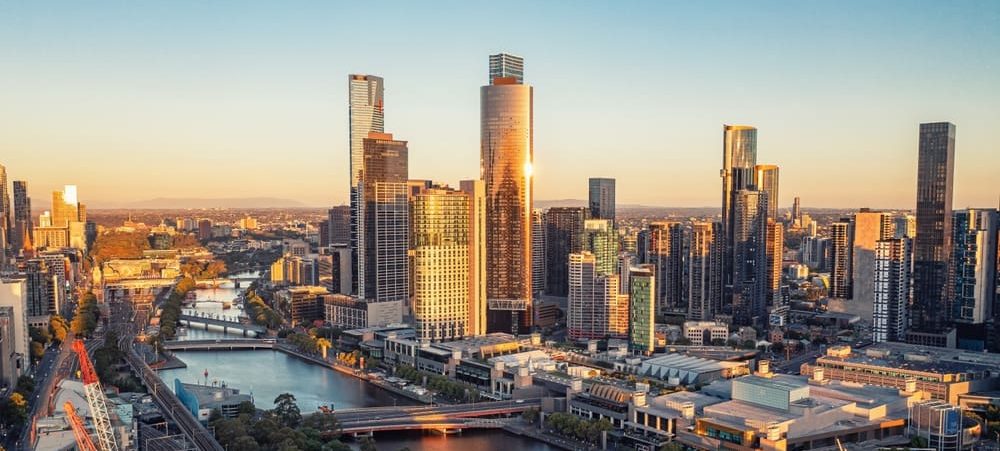AN inner-city Melbourne council has advised its residents that a shift to plant-based diets is critical in addressing the “climate crisis”.
The Yarra City Council used an article in The Guardian, a scientific paper about emissions and another about river pollution to surmise that a meatless Melbourne was the best option for the planet. The council document was called the ‘climate emergency plan 2024-2030’.
Yarra’s council covers the inner north-eastern suburbs of Abbotsford, Alphington, Burnley, Carlton North, Clifton Hill, Collingwood, Cremorne, Fairfield, Fitzroy, Fitzroy North, Princes Hill and Richmond.
The situation could be articulated by an article in the satirical website The Betoota Advocate, which was headlined “shutting the f*** up about something you know nothing about simply not okay, says Melbourne”.
Betoota’s article was not addressing the Yarra City Council’s decision, rather the mentality of the Melbourne constituents in the turbulent times of recent years.
Cattle Australia chief executive officer Dr Chris Parker did directly address council’s position, saying the decision was ill-informed and that dietary recommendations were not within its remit.
“Cattle Australia is appalled by Yarra City Council recommending its residents move towards vegetarianism and rejects the flawed and uninformed basis of its decision to promote a plant-based diet,” Dr Parker said.
“Australian beef producers prioritise their responsibility to care for natural resources and we absolutely stand behind our sustainability credentials and commitment to continual improvement, as evidenced by the gains we consistently make across a range of environmental measures.”
How did the council come to this position?
In the dietary section of the climate emergency plan, the Yarra City Council said the global warming caused by livestock methane emissions were the main reason for the decision.
It used a paper in Nature Climate Change which compared a forecasted increase in meat demand to greenhouse gas emissions metrics and concluded that something needed to be done to limit methane emissions.
“There is substantial evidence to suggest that the emissions associated with current dietary patterns – particularly the high and increasing rate of consumption of animal products – are likely to make it impossible to limit global heating to 1.5°C, even if fossil fuel emissions were eliminated completely,” the Yarra Council said.
Dr Parker said council was only telling one side of the story.
“The beef industry is unique, in that methane is the largest attributable greenhouse gas to our sector, not carbon dioxide,” he said.
“It is important to recognise that notwithstanding their warming effect, methane emissions are part of a 12-year, short-lived biogenic cycle and therefore have a different impact on global warming than emissions from fossil fuels which are additional to the atmosphere and persist for thousands of years, if not millennia.
“Further, the Federal Government’s own statistics showed that in 2020 the Australian beef industry had reduced its net CO2e emissions by 64.1pc since 2005 and it continues to improve on key sustainability measures.”
Yarra’s other main reasoning for the decision was that Australia is a “global deforestation hotspot” – basing this off an article in The Guardian referencing a study done by Greenpeace and The Wilderness Society.
Another claim Dr Parker said was misguided.
“Well-managed and thriving natural resources and livestock production are not adversaries, but rather run hand-in-hand. Australia has some of the strictest vegetation management regulations in the world,” he said.
“The United Nations Food and Agriculture Organization ranks Australia as second in the world for reforestation with an average net gain in forest area between 2010-2020 of 446,000 hectares per year.”
Beef Central asked the Yarra council why it did not consider research from the CSIRO and Oxford University which have concluded that the warming of stable livestock methane emissions was being overstated by current metrics.
We asked how interest groups like Greenpeace and The Wilderness Society are credible sources, given their deforestation-related attacks on the beef industry are used for fundraising campaigns.
We also asked whether it had considered the fact that the majority of Australia is non-arable land and that animals have grazed and humans have eaten meat for thousands of years.
We will update this article with any response we receive.
No place for ideology in dietary recommendations
Along with completely disagreeing with the reasoning for Yarra City Council’s assertions about the environmental impact of meat, Dr Parker said bringing diet and environment together was a problem.
“Beside the Yarra City Council’s misguided environmental concerns, there is no place for ideology in dietary recommendations. We respect the right for all individuals to choose what they eat, and the fact is red meat plays a crucial role in nourishing the nation,” he said.
“A typical 150g serving of Australian beef contains 12 essential nutrients recommended for good health and is a powerful source of protein, iron, zinc and vitamin B12. Beef that is predominantly grass-fed is also a source of Omega-3 fatty acids, with more iron and zinc than poultry and fish.
“It is beyond Council remit to make diet recommendations for any reason, and the Yarra City Council’s Climate Emergency Plan is simply another example of government falling prey to activist ideology.”

